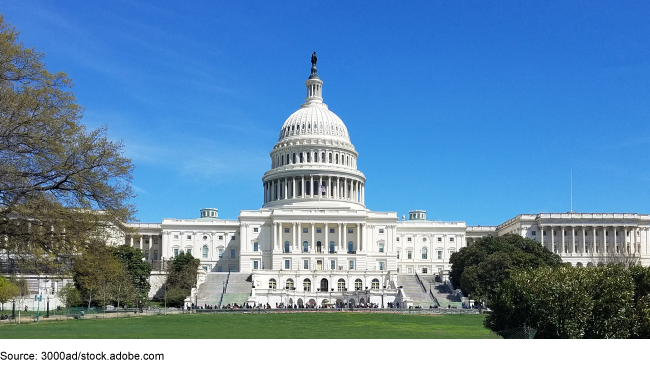Legislative Branch: Options for Enhancing Congressional Oversight of Rulemaking and Establishing an Office of Legal Counsel [Reissued with revisions on Jan. 9, 2024]
Fast Facts
Oversight of the executive branch is one of Congress's main responsibilities. In recent years, Congress has explored ways to modernize its operations in this area, including regulatory oversight and congressional legal representation for working with the executive branch.
To help, we researched Congress's options. It can create new regulatory or legal offices, oversight processes, or regulatory requirements—or change existing ones.
Each of these options comes with tradeoffs and other considerations. For example, establishing a new office to research proposed rules could increase staff costs and may duplicate existing congressional services.

Revised January 9, 2024, to correct page 20. The corrected section on page 20 should read: “The Office of the Whistleblower Ombuds was first established in 2019, and permanently added to the standing rules in 2021, in the Rules of the House of Representatives to promulgate best practices for whistleblower treatment for offices of the House.” The corrected footnote on page 21 should read: “H.R. Cong. Res. 6, 116th Cong., § 104(e) (2019); H.R. Cong. Res. 8, 117th Cong., § 2 (2021).”
Highlights
What GAO Found
GAO identified numerous options for how Congress could enhance oversight of the executive branch rulemaking process. GAO groups the options into three overall themes (see figure). One set of options involves creating a new entity, such as a Congressional Office of Regulatory Review. Other options for additional congressional oversight involve either revising the existing regulatory process or altering existing functions (e.g., altering the responsibilities or duties of entities involved with rulemaking).

Congress would have to weigh various tradeoffs if it were to adopt any of these options. While all options could enhance congressional oversight, establishing a new office to conduct research on proposed rules, for example, could entail increased costs for additional staff and potentially duplicate existing congressional services. The extent and scope of the tradeoffs may depend on what Congress determines to be the mission and functions of the new office. Other options, such as requiring agencies to conduct additional analyses, could add complexity or time to the existing rulemaking process.
Options also exist for establishing a Congressional Office of Legal Counsel (OLC), which Congress has debated for decades. Establishing the OLC would require specifying its function, organizational structure, and legal authority. Potential functions for the office could include advisory, litigation, and coordination with other entities. Organizational structure options include making the OLC a joint or separate entity within or outside of Congress. Authorities by which Congress could establish the OLC include legislation or adopting new chamber rules. Each of these options has tradeoffs. For example, if Congress were to establish a joint OLC, the OLC may speak for Congress as a whole on legal issues, but it could encounter difficulties in obtaining consensus across chambers.
Why GAO Did This Study
Congress has broad oversight and investigative authorities, which are essential to its legislative functions under Article I of the U.S. Constitution. In recent years, members of Congress have explored options for enhancing its oversight functions. This includes oversight of federal rulemaking—the process used by federal agencies to formulate, amend, or repeal a rule or regulation. Members of Congress also have shown interest in reforming Congress's legal services.
GAO was asked to review congressional oversight of executive branch rulemaking, as well as considerations for establishing a congressional office for legal counsel. This report identifies and describes options for enhancing Congress's role in the oversight of the federal rulemaking process and for establishing a potential Congressional Office of Legal Counsel, as well as potential tradeoffs.
GAO analyzed literature from academic, legal, and other sources, as well as GAO's past work. GAO also interviewed selected officials at congressional offices, the Office of Management and Budget, professionals from nongovernmental organizations and the private sector to identify tradeoffs and other considerations. Finally, GAO held group discussions with researchers and other knowledgeable individuals to validate its research.
This report contains supplemental material on the options. See http://www.gao.gov/products/GAO-24-105870.
For more information, contact Yvonne Jones at (202) 512-6806 or jonesy@gao.gov.
